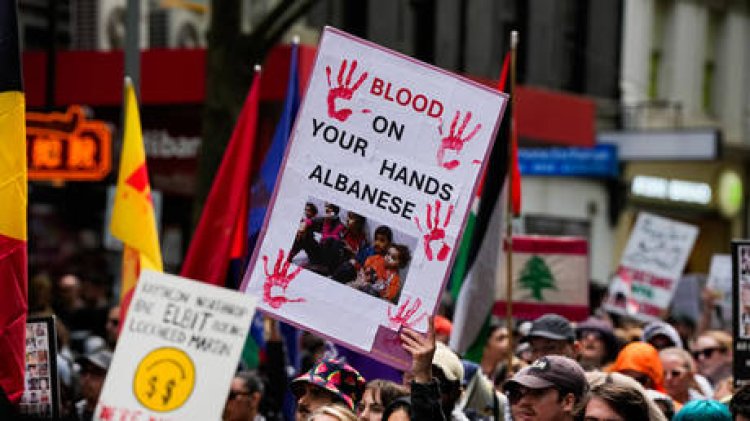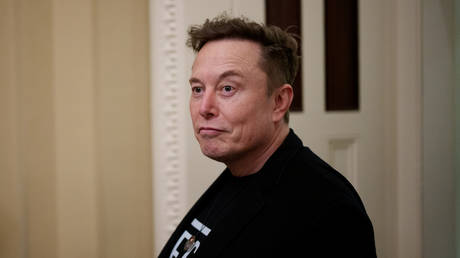The Future of All Conservative Parties Is About to Be Revealed
The upcoming Australian election is set to serve as a reflection of the trends likely to emerge in Western elections in the near future. Next Saturday, Australian voters will head to the polls, where voting is mandatory—a stark contrast to...

Next Saturday, Australian voters will head to the polls, where voting is mandatory—a stark contrast to practices in many other Western democracies. However, this is not a task many in the electorate are embracing with enthusiasm or optimism.
The choice before voters is a disheartening one, with one commentator aptly noting this election as “the most dismal in decades.”
In-depth discussions on policy have been virtually absent. Both leaders appear content to offer minimal gestures to the electorate: Prime Minister Albanese has proposed a reduction in electricity prices, while conservative opposition leader Peter Dutton promises cuts to petrol prices.
From any critical assessment, the Albanese Labor government’s first term has been marked by significant failures, and it scarcely warrants re-election. A capable opposition leader should have been able to easily oust Labor from power.
The past three years have seen a dramatic increase in cost-of-living pressures— energy and food prices have surged, and housing costs in major cities have skyrocketed, leaving many ordinary wage earners struggling to afford basic necessities.
Polling consistently shows that this is the primary concern for voters, yet the Albanese government has done nothing to address it.
Despite their reluctance to voice it, Australian voters recognize that neither the incumbent Labor government nor the Conservative Liberal/National party opposition is equipped to tackle the cost-of-living crisis. Throughout the campaign, both leaders have resorted to outright falsehoods regarding their plans to resolve this issue. The growing disenchantment among the electorate towards both major parties should not come as a surprise.
As of now, no credible political alternative has emerged to provide the electorate a pathway out of this seemingly insurmountable dilemma. In many respects, Australia seems to lag behind the populist movements seen in the U.S., UK, and France.
Both main Australian parties are firmly aligned with policies that favor the ruling global elite, reinforcing the divide between the economic ‘haves’ and ‘have-nots’ as the cost-of-living crisis deepens.
This alignment is not unexpected, considering Australia's historical role as a colonial political and economic satellite of both the UK and the US.
Australia's continued reliance on these weakening colonial powers—each with varying methods of exerting control—is evident in the fact that our current head of state is King Charles III, while our economic overseers remain, as Woody Guthrie put it, the “money grubbing racket boys” of Wall Street.
So what should we make of next week’s election?
If we are to trust nearly all recent polls, it appears that the inept Albanese Labor government may secure re-election with an increased majority.
How can we explain this seemingly paradoxical situation?
It cannot be attributed to any tangible “achievements” of the Albanese government, as even astute Labor supporters would concede that none exist. Nor does it stem from Albanese's political prowess or charisma—both are notably absent—although some may find his blandness and non-threatening approach appealing.
It likewise cannot be blamed on Peter Dutton’s glaring political incompetence, his ill-timed flirtation with Trump which resulted in disastrous tariffs, or the fact that he has arguably run the worst election campaign in Australian political history.
The underlying explanation lies in the conservative opposition's failure to present an effective alternative agenda when compared to the Labor Party. This shortcoming is not solely a result of Dutton’s personal failings but is rooted in a deeper ideological schism that has divided mainstream conservative parties in the West.
Over recent decades, a significant ideological rift has developed within these parties—between those clinging to traditional middle-class values and others who have adopted the newer, progressive ideologies espoused by the emerging global elite. This division encompasses both economic and cultural dimensions and was exacerbated by the Brexit referendum in the UK.
This ideological split has fueled ongoing instability within mainstream conservative parties throughout the West. In both Australia and the UK, for instance, these parties have experienced a series of leadership upheavals, ultimately leading voters to oust them from power in recent years.
A notable outcome of this divide is mainstream conservative parties' inability to vigorously challenge dominant progressive ideologies. Many of their members and supporters subscribe to such narratives, complicating their position.
This issue has hampered Dutton's election campaign.
Conservative commentators, including those from the Murdoch press, have consistently encouraged Dutton to emerge as a fierce critic of prevailing progressive ideologies, thus adopting a populist political platform identical to Trump’s. However, Dutton has refrained from doing so, unable to reconcile such a stance within the confines of the mainstream conservative party he leads.
Should he take this route, he risks alienating a substantial portion of his party and conservative voters, potentially resulting in a split. More critically, no established political party aiming for electoral success can afford to overtly confront prevailing ideologies, given that a significant segment of voters supports them.
Dutton thus finds himself in a predicament.
This was clearly demonstrated during one of the recent debates when a journalist asked him whether he believed in climate change. Dutton’s response was, “I will leave that to the scientists,” even though the opposition endorses the Paris accords and commits to net-zero targets.
This non-response satisfied no one; it alienated both conservative voters who believe in climate change as well as those who feel that climate change policies have damaging economic repercussions.
In failing to take a definitive stance on such a critical issue, Dutton appears to express no conviction. Can he genuinely believe that disaffected voters struggling with rising electricity costs see climate change merely as a scientific matter?
It should be evident to Dutton that to reach out to voters marginalized by globalization and who suffer from the cost-of-living crisis, he must confront the dominant progressive ideologies surrounding climate change—precisely those that many of these voters reject for valid economic and cultural reasons.
This poses a conundrum for Dutton: to draw a clear distinction between his party and Labor, he needs to vocally oppose prevailing ideologies, yet as the head of a mainstream conservative party, he cannot afford to do so.
This dilemma also mirrors that faced by Kemi Badenoch, leader of the UK opposition, illustrating a misunderstanding among right-wing commentators who demand that mainstream conservative leaders suddenly transform into populists.
Moreover, they overlook two additional insurmountable challenges conservative leaders encounter in attempting such a transition: adopting an isolationist foreign policy and at least feigning representation of the working class’s interests.
Dutton, like Badenoch, remains a staunch supporter of Cold War policies, the Zelensky regime in Ukraine, and an aggressive stance against moderate trade union demands.
Trump, conversely, can readily commit to ending conflict in Ukraine and gaining the Teamsters Union’s support—stances that are utterly unfeasible for a conservative leader like Dutton.
If this analysis holds true and, as most polls suggest, Dutton loses next week’s election, it indicates that the conservative coalition in Australia faces a bleak long-term future, paralleling the apparent irrelevance confronting the UK Conservative party.
After a likely re-election of the Albanese government, Dutton might very well be ousted as leader. Yet, in fairness, it must be acknowledged that his shadow cabinet, which he has wisely kept out of the limelight during the campaign, consists of individuals far less competent than he.
An alternative scenario remains possible—one that reflects the recent rise of populist parties in other Western democracies—whereby the coalition parties may fracture, and the right-wing factions of the Liberal and National parties could unite to form a new, genuinely populist party with a radically distinct political platform.
This scenario could unfold, though it may take time and entail significant upheaval.
A new populist party would face a reinvigorated Labor party—emboldened by winning an election it likely did not deserve—yet still committed to elite programs that could deepen the ongoing cost-of-living crisis haunting Australia.
Whereas the conservative coalition can't effectively challenge elitist policies, the Labor party remains firmly entrenched in them.
Irrespective of the outcomes from Saturday's election, it is prudent to anticipate that the chronic instability that has marked Australian politics for decades—and indeed, politics across the West—will only worsen.
In this light, little will change, reflecting a more profound historical trend within the Australian context.
In 1964, renowned Australian intellectual Donald Horne authored “The Lucky Country,” in which he described Australia as follows: “Australia is a lucky country ruled mainly by second-rate people… It lives on other people’s ideas, and although its ordinary people are adaptable, most of its leaders… lack curiosity about the events that surround them.”
Horne's observations could easily be applied to Dutton, Albanese, and the looming federal election scheduled for next Saturday.
Lucas Dupont for TROIB News












